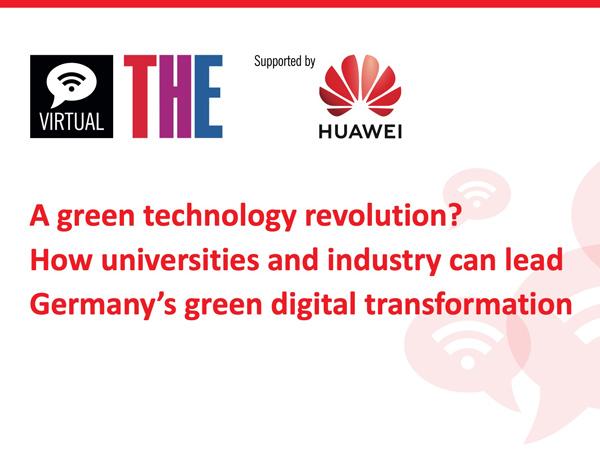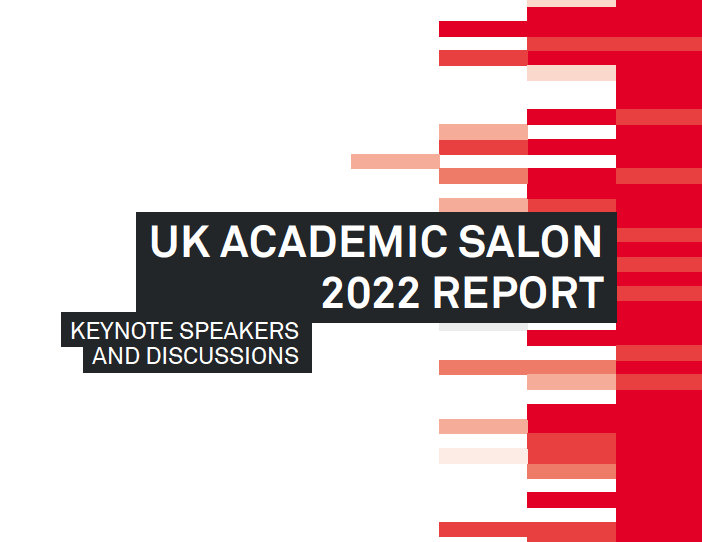
The role of collaboration in Germany’s green revolution

The German government has ambitious targets to achieve net zero emissions by 2045, a goal requiring unprecedented levels of collaboration between politicians, industry and the education sector.
A sustainable digital infrastructure sits at the heart of this ambition, but the country is still on a journey to develop a robust system, agreed the panel at a recent round table on Germany’s green digital revolution, held in partnership with Huawei.
Claire Hindley, professor of language and communication at the International University of Applied Sciences, said attitudes towards digital transformation in Germany were cautious. “There is a difference culturally,” she said. “People are more concerned about data protection issues and students are less willing to share on platforms such as Zoom and Teams. Plus, in some areas, there’s a lack of digital infrastructure.”
Overcoming infrastructure issues would be crucial for driving digital adoption, added Michael Yang, chief representative for Huawei Germany. “If we recognise the contribution of the ICT industry in carbon reductions, we can work together to leverage low carbonisation,” he explained. Huawei has already made steps towards greener consumption in many territories through cluster computing and simplified digital architecture for mobile sites.
Universities can contribute by working in a more multidisciplinary way, said Mei Wang, professor of behavioural finance at Otto Beisheim School of Management. “Finance is extremely interdisciplinary because it involves complex decisions, bringing in areas such as neuroscience, environmental economics and theoretical physics,” she said. “Public discussion can focus on the ideology but there are lots of technical issues as to how you reach that goal.” Joint research projects could increase funding for green initiatives and help scale up ideas, Yang added.
The importance of upskilling and recruiting workers cannot be underestimated, with students’ expectations of universities’ and employers’ green credentials high. “There’s an increasing demand that employers should concern themselves with this issue, with corporate social responsibility high on young people’s tick list,” said Hindley, noting the high proportion of young people who voted for Germany’s Green Party in its recent elections.
But companies’ efforts to show their commitment to sustainability must be authentic, noted Wang, who pointed to increased levels of greenwashing in corporate and academic branding. “We need to pay attention to detail as there has been a lack of evidence-based discussions in some areas,” Wang said.
“It can be difficult for people to know what the best direction is and whether their small change amounts to something,” argued Lisa Marshall, professor and research group leader in neuroplasticity and rhythms at the University of Lübeck. “Interaction is necessary to move us in a greener direction,” she said.
Yang concluded that a holistic approach works best, listing five ways that universities, government and industry could collaborate: by not taking digital infrastructure for granted; by facilitating transformation in smaller companies as well as larger ones; through inclusive collaboration; by cultivating talent; and through government efforts to offer an open regulatory framework in which sustainability and innovation could thrive.
The panel:
- Claire Hindley, professor of language and communication, International University of Applied Sciences
- Lisa Marshall, professor and research group leader in neuroplasticity and rhythms, University of Lübeck
- Mei Wang, professor of behavioural finance, Otto Beisheim School of Management
- Michael Yang, chief representative, Huawei Germany
Find out more about Huawei and higher education.

